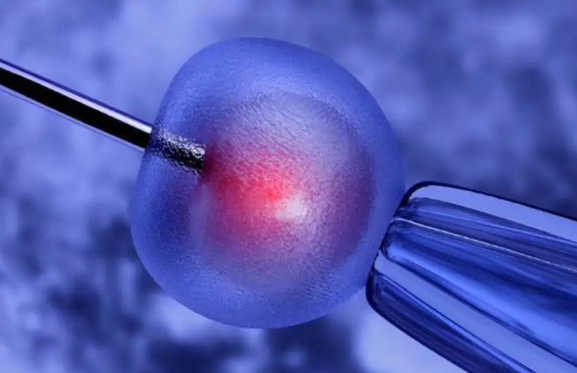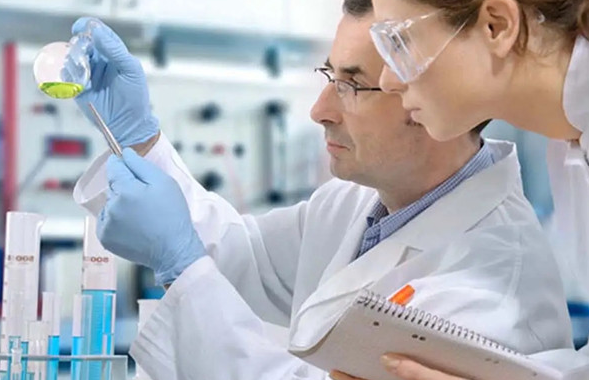The answer is: eggs can be donated, but it depends on which type of intrauterine device you are using. This is one of the most commonly asked questions when we receive every girl who is interested in donating eggs.
Some people are worried about the "fight" between contraceptive methods and egg donation, while others simply think that they are automatically excluded from the egg donation population because they have inserted an intrauterine device. Actually, it's not that absolute. The key is whether you are using a hormonal intrauterine device or a non hormonal one (such as copper).
These two types of birth control devices have a significant difference in treatment during the egg donation process.
Does intrauterine device conflict with egg donation? First of all, the key point is that if you are using a non hormonal intrauterine device (i.e. copper T), it generally does not affect the egg donation process and does not need to be removed; But if it is a hormone type, the doctor is likely to recommend that you first remove it before entering the egg donation cycle.
Why is this? Because hormonal intrauterine devices can affect ovulation rhythm, some people even have their periods stopped because of them. The key to egg donation is to mature multiple eggs at the appropriate time through ovulation inducing drugs. If the body does not follow the rhythm, it is difficult for doctors to determine when eggs can be retrieved, and they cannot guarantee the smooth development of follicles.
So, wearing a hormonal intrauterine device to donate eggs is a bit like wanting to sunbathe on a rainy day. If the timing is not suitable, the effect will be greatly reduced.

The difference between copper contraceptive devices and hormonal contraceptive devices is that the principle of copper T is to change the environment of the uterus, preventing sperm from "surviving". It doesn't matter whether you ovulate or not, nor does it affect the body's natural hormone fluctuations. In this way, doctors can clearly know when to promote ovulation and when to arrange egg retrieval.
Unlike hormone based birth control devices, it belongs to the category of "all-around players": it not only prevents sperm, but also makes the body think it doesn't need to ovulate, and inhibits endometrial growth. In this way, egg donation has become a game of "disrupting the rhythm", where doctors can only inject while "pulling" with hormones in your body.
To put it more directly, copper contraceptive devices can be used in conjunction with egg donation without moving; Hormonal type, on the other hand, must first exit the stage before egg donation can proceed smoothly.
Do I need to stop using contraceptive devices before donating eggs? It depends on which one you use. If it is a hormone, such as Mirena, Skyla, Kyleena, or Liletta, the doctor may recommend that you remove it in advance. After discontinuation, it is generally necessary to wait for the body to resume natural menstruation before entering the egg donation cycle. The duration varies, some people recover in two or three weeks, while others have to wait for several months.
Copper T users do not need to move much, they only need the doctor to confirm that their ovulation is normal, and then they can arrange the follow-up process.
Not sure which category you belong to? Or are you worried that removing the contraceptive device will affect your original contraceptive plan? Directly communicating with a fertility doctor is the most reliable approach. They will provide clear advice based on your current condition to ensure that it neither delays egg donation nor affects personal health.

Can I still use an intrauterine device after donating eggs? Certainly. If you plan to continue using an intrauterine device (IUD) for contraception, you can arrange for a repositioning after the egg donation is completed. This time point is usually after the recovery period, when the doctor confirms that the uterus is in good condition, it can be smoothly placed back.
The entire process will not affect your future contraception and will not make your body hold grudges. However, during the period when the contraceptive device is temporarily suspended, doctors may recommend using other methods of contraception.
Emphasizing again: It is possible to donate eggs while wearing an intrauterine device (IUD), but the prerequisite is that you are using a non hormonal type (copper T). Hormonal intrauterine devices can interfere with egg donation medication and need to be removed in advance. After egg donation, the intrauterine device can be reused without affecting future contraception. By the way, if you enjoy reading research conclusions, you can refer to some studies in the field of reproductive health, such as those in journals like Fertility and Sterility, which have mentioned that non hormonal intrauterine devices do not affect the success rate of egg donation.
Finally, many girls who are willing to donate eggs are motivated by a gentle idea, 'I can help others have a home'. If you happen to be wearing an intrauterine device and considering egg donation, there's really no need to back down because of this small device.
As long as you figure out which model you are using and confirm with the doctor if it is suitable, you can smoothly start this warm journey.
Ask the doctor if you have any questions, and take the first step if you have any ideas. Donating eggs is not just a process, it carries the long wait of others behind it. Perhaps your little courage is their entire future.

 简体中文
简体中文